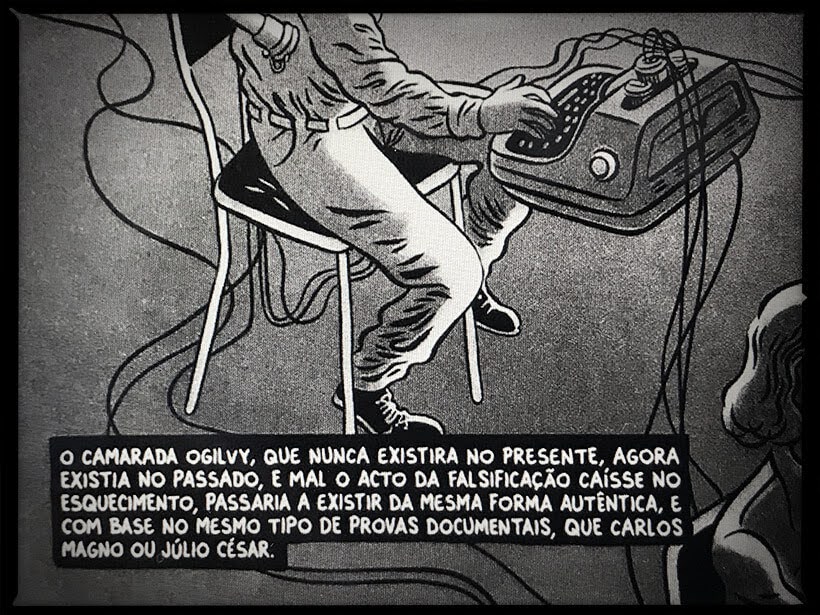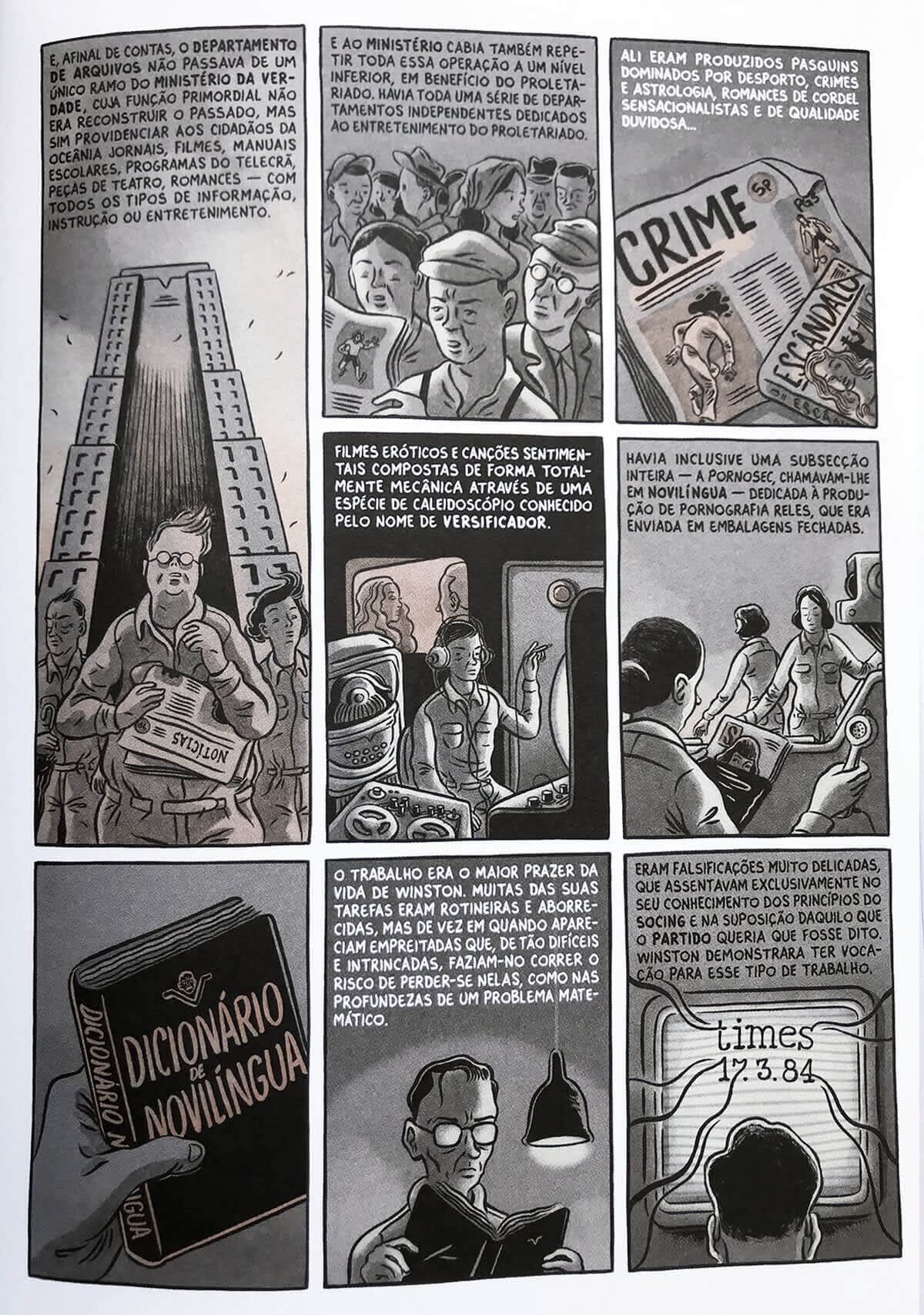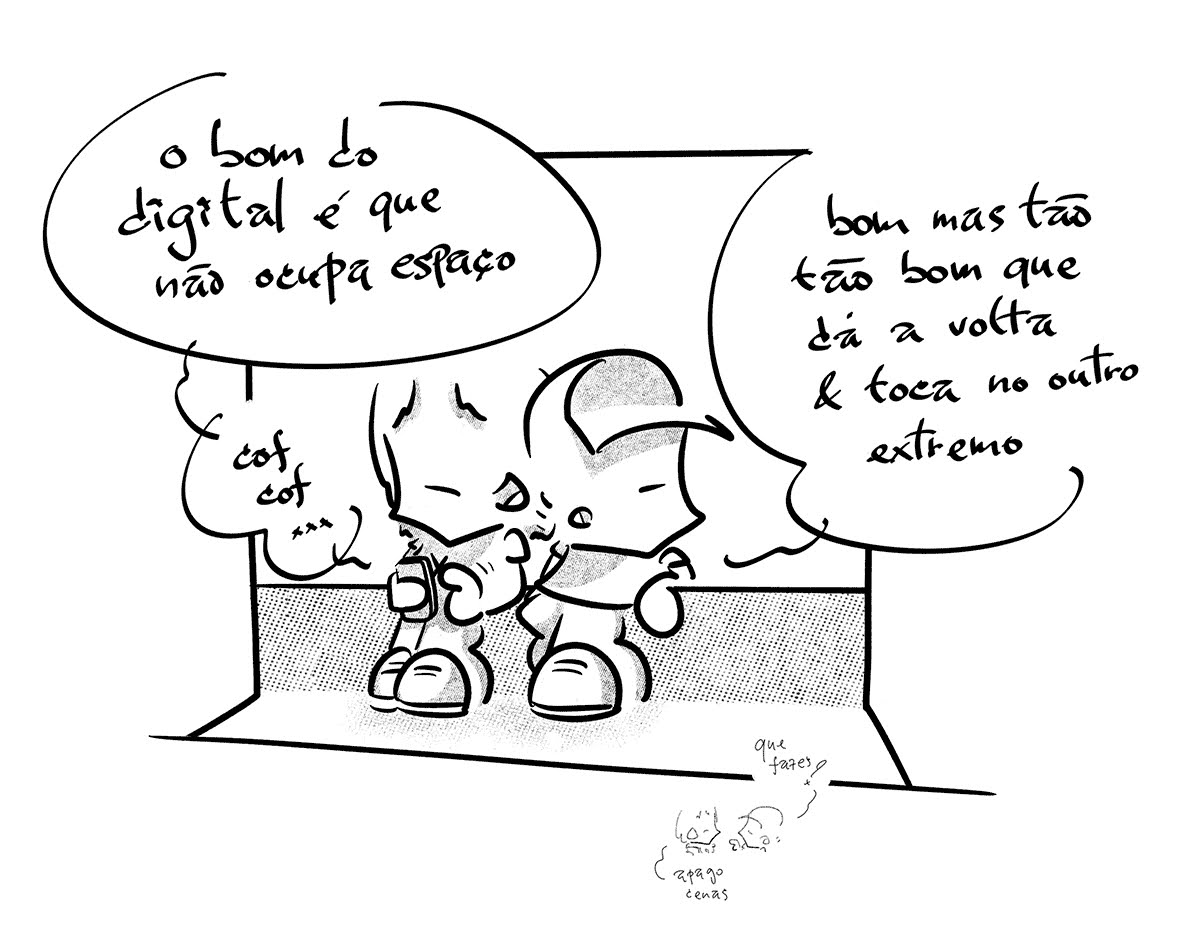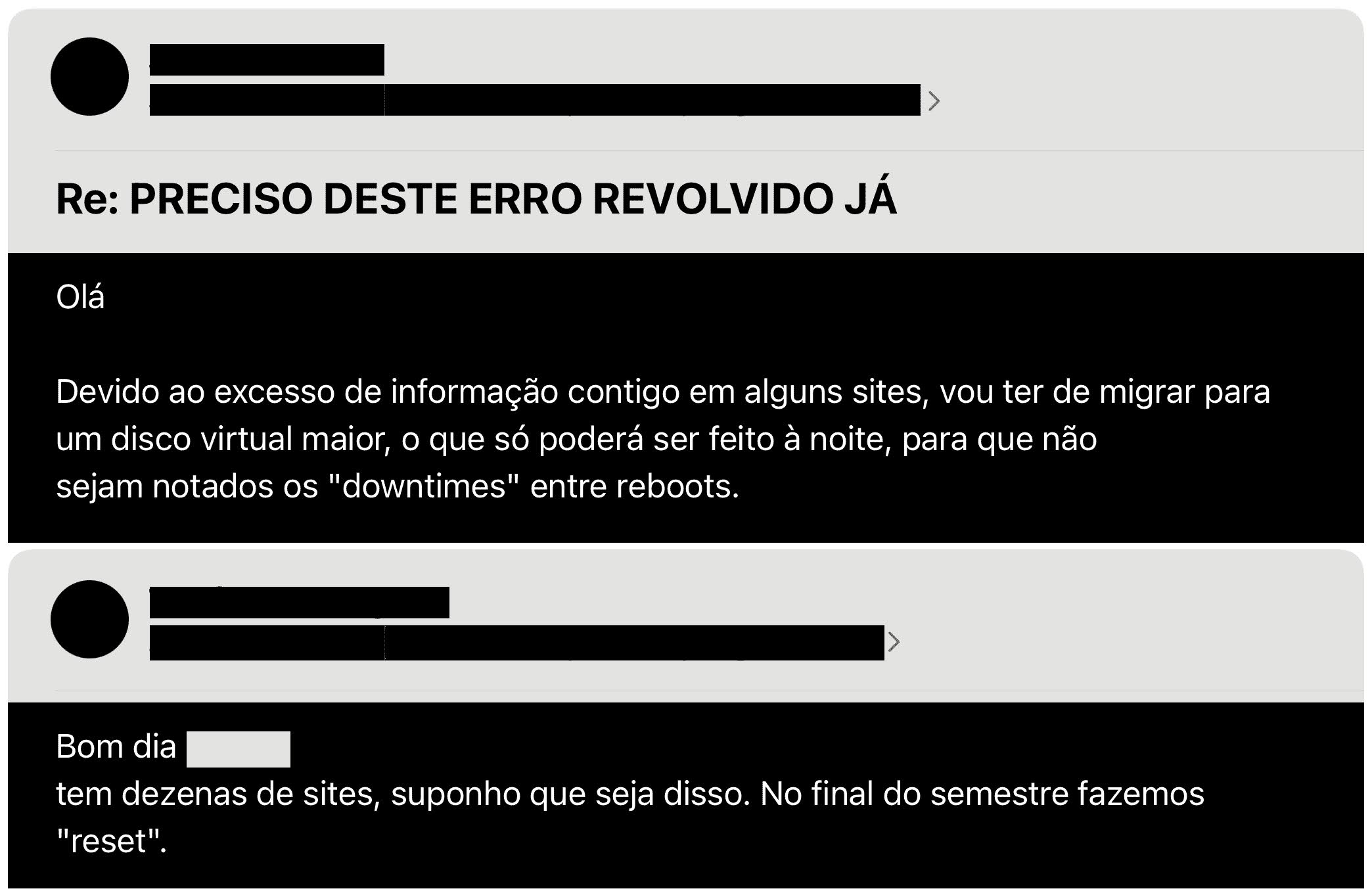«isto não é hipotético»
TL;DR: apagar e rescrever o passado na era digital, outro dia embrenhado nas entranhas da Máquina. Nos 100 anos do Grande Irmão a oriente 1 jul 2021, espreitamos os muitos primos a ocidente e registamos memórias para esquecermos colectivamente mal a tecnologia o assinta.
 "1984 a novela gráfica" de Fido Nesti 2020
"1984 a novela gráfica" de Fido Nesti 2020Os historiadores sabem que o passado não é imutável, tal como os jornalistas sabem que o presente não é uno. Somemos-lhe em máximas batidas que o futuro não está ainda escrito, e eis-nos a abeirar da complexidade das incertezas que se abatem sobre literários de aspirações científicas ocupados com a pós-modernidade. Mas o antes-e-depois das épocas e seus hábitos foi sempre um esforço fácil aos que lhe dedicam a atenção desde que desfasados no tempo, exercício que sabem só vingar em retrocesso: nem se aconselha o discernir das modas no presente entre os que se queiram escudar de incriminações pelos seus pares, nem se lhe recomenda que intentem à adivinhação do que há-de vir se desejam manter uma aura de respeitabilidade. Contraposto, tudo passa, e essa inconstância uma constante da humanidade, pelo que também a facilidade do hoje-sobre-ontem se complicará nos próximos amanhãs (*) Que, enfim, contra o posto, passamos a supor — idoneidade aos pardais então!. Neste caos, apenas a imutabilidade dos registos históricos, mesmo se sujeitos à interpretação das vontades, fornecem as bases da investigação e debate.
A volatilidade dessa suposta inamovibilidade é um tema transversal ao “1984” de Orwell, cuja escala massiva do empreendimento exigido aos funcionários do Ministério da Verdade nos parece ainda demasiado futurística para receios imediatos.
Ora, funny thing, a História tem um certo jeitinho para contornar futurologia de inspiração comunista, realizando-a um pouco ao lado do previsto.
Neste virar de século, os próprios registos históricos deixaram de ser permanentes, e não podemos apontar (apenas) à adulteração das fontes por agentes com interesses específicos a nova fluidez do passado. Apesar da sua vasta influência, os que se assemelham à distopia acima são por enquanto uma ínfima minoria. Se a mais recente dissensão ao consenso é já uma realidade mundana entre nós, fruto das novas tecnologias de que depende o nosso dia-a-dia, devemo-la com igual vigor à inação do desinteresse generalizado de todos e particularmente daqueles que deviam zelar pela grande Narrativa, tão alheios à dita como os membros da prole no romance que não podia antever a estirpe Reagan/Thatcher quando escolheu a década ao título.
Para resenha dos tempos nos perigos da informação, conteúdos, factos a que a web perde o rasto recomendamos a peça recente no The Atlantic 30 jun 2021 nas consequências nefastas do link rot (textos eliminados ou desaparecidos) e content drift (textos reeditados depois de publicados) que infestam a web:
People tend to overlook the decay of the modern web, when in fact these numbers are extraordinary — they represent a comprehensive breakdown in the chain of custody for facts.
in "The Internet Is Rotting" 30 jul 2021
"Estes números" citam estudos da praga endémica que grassa a internet, não apenas no binómio informal / institucional, mas incluindo áreas treinadas na importância da validação da informação vinculada como o jornalismo (New York Times: "If you go back to 1998, 72 percent of the links are dead.") ou a academia ("In 2016, an analysis [of a data set of more than 3.5 million scholarly articles about science, technology, and medicine,] found that 75 percent of all references had drifted").
Surely anything truly worth keeping for the ages would still be published as a book or an article in a scholarly journal, making it accessible to today’s libraries, and preservable in the same way as before? Alas, no. […] Libraries exist, and they still have books in them, but they aren’t stewarding a huge percentage of the information that people are linking to, including within formal, legal documents. No one is.
Because information is so readily placed online, the incentives for creating paper counterparts, and storing them in the traditional ways, declined slowly at first and have since plummeted. Paper copies were once considered originals, with any digital complement being seen as a bonus. But now, both publisher and consumer see digital as the primary vehicle for access, and paper copies are deprecated.
in "The Internet Is Rotting" 30 jul 2021
Sigam à leitura na integra, nós arquivamos porque é do espírito da nossa redistribuição descentralizada, ficam highlights da insustentável imaterialidade do material que “nasceu digital” e a retroactive mallebility que o atrapalha:
i) Bibliotecas:
Typically buying mere access to the material for a certain period of time, without the ability to transfer the work into the purchaser’s own chosen container. “Subscription” no longer means a regular delivery of paper volumes that, if canceled, simply means no more are forthcoming. Instead, subscription is for ongoing access to the entire corpus of journals hosted by the publishers themselves. If the subscription arrangement is severed, the entire oeuvre becomes inaccessible. Libraries are no longer custodians for the ages of anything, but rather poolers of funding to pay for fleeting access to knowledge elsewhere.
in "The Internet Is Rotting" 30 jul 2021
ii) Kindle/ebooks:
Purchased books can be involuntarily zapped by Amazon (*) O autor cita a exemplo o "1984" de George Orwell – coincidências.. [And] deletion isn’t the only issue. Not only can information be removed, but it also can be changed. There are sufficient technical and typographical alterations to e-books after they’re published that a publisher itself might not even have a simple accounting of how often it, or one of its authors, has been importuned to alter what has already been published. The closest approximation of post-hoc editing would have been to influence the contents of a later edition. E-books don’t have those limitations, both because of how readily new editions can be created and how simple it is to push “updates” to existing editions after the fact. Rereading an old Kindle favorite might then become reading a slightly (if momentously) tweaked version of that old book, with only a nagging feeling that it isn’t quite how one remembers it.
in "The Internet Is Rotting" 30 jul 2021
iii) A própria base da web, URL’s:
Even the concept of a link — a “uniform resource locator,” or URL — is under great stress. Since Kindle books don’t live on the World Wide Web, there’s no URL pointing to a particular page or passage of them. The same goes for content within any number of mobile apps. The rise of the web has led to routinely cited sources of information that aren’t part of more formal systems; blog entries or casually placed working papers at some particular web address have no counterparts in the pre-internet era. Long-term writing, including official documents, might often need to point to short-term, non-canonical sources to establish what they mean to say—and the means of doing that is disintegrating before our eyes (or worse, entirely unnoticed). And even long-term, canonical sources such as books and scholarly journals are in fugacious configurations—usually to support digital subscription models that require scarcity — that preclude ready long-term linking, even as their physical counterparts evaporate.
in "The Internet Is Rotting" 30 jul 2021
Precisamos de melhor segway ao 1984? Socing aplicado, mais-é-menos, arquivado-evaporado, a BD recente que devem reconhecer de outras lides, adaptado e ilustrado por Fido Nesti (2020). Não vos fazemos resenha do(s) livro(s), mas citamos a seu propósito mais umas linhas do artigo anterior:
 pag.43
pag.43"Rereading an old Kindle favorite might then become reading a slightly (if momentously) tweaked version of that old book, with only a nagging feeling that it isn’t quite how one remembers it." 30 jun 2021
The project of preserving and building on our intellectual track (...) is thus falling victim to the catastrophic success of the digital revolution that should have bolstered it. Tools that could have made humanity’s knowledge production available to all instead have, for completely understandable reasons, militated toward an ever-changing “now,” where there’s no easy way to cite many sources for posterity, and those that are citable are all too mutable.
in "The Internet Is Rotting" 30 jul 2021
Fechamos com pequena nota no ever changing now, all too mutable. O artigo que vos trazemos foi originalmente publicado sob o título "The Rotting Internet Is a Collective Hallucination", poucas horas depois editado para o "The Internet Is Rotting". Irónico que um texto nesta temática, sobre acrescentos do seu próprio autor a terceiros — “we should all want an author’s or editor’s note at the bottom indicating where a correction has been applied and why, rather than that kind of quiet revision” — sirva a exemplo. Se não o tivéssemos lido na sua versão anterior talvez nunca soubéssemos dessa sua primeira estampa, se não soubéssemos o que procurar nunca o poderíamos ter confirmado. Mas porque o lemos e o relemos e o estranhámos, mais que obrigados a partilhar ao colectivo e — segunda ironia — cumprindo o seu segundo desígnio, devemos forçar aquilo do contra: não senhores, esta não é uma alucinação hipotética que só acontece aos outros.


